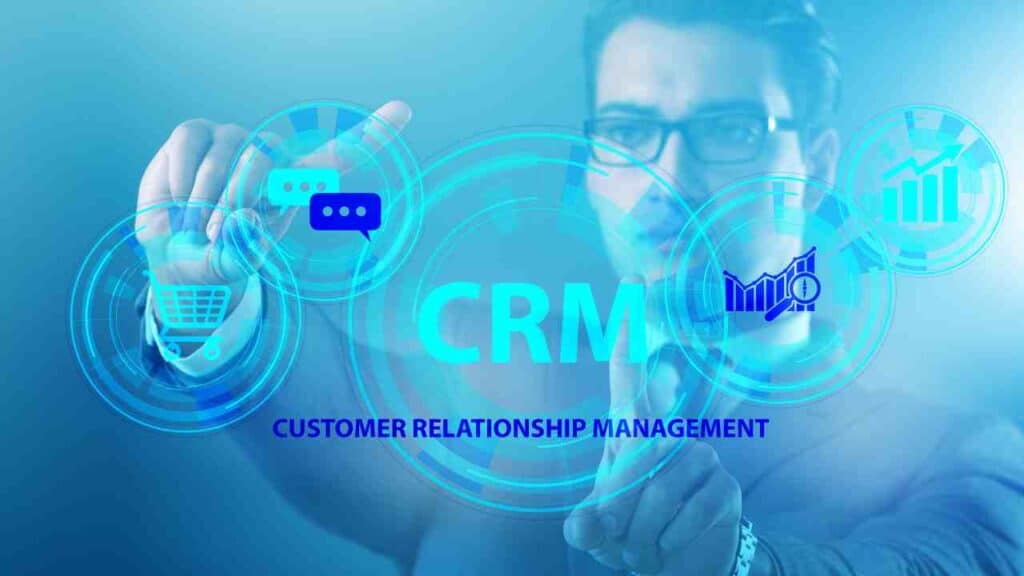CRM Benefits for Aligning Resources and Business Objectives

Customer Relationship Management (CRM) is a powerful tool that helps businesses manage their interactions with customers, streamline processes, and improve overall efficiency. In today’s competitive business landscape, aligning resources and business objectives is crucial for success. By implementing a CRM system, businesses can achieve this alignment and reap numerous benefits. In this article, we will explore the various advantages of CRM for aligning resources and business objectives, supported by examples, case studies, and statistics.
1. Improved Customer Satisfaction
One of the primary goals of any business is to satisfy its customers. A CRM system enables businesses to better understand their customers’ needs, preferences, and behaviors. By centralizing customer data, businesses can gain valuable insights that help them tailor their products or services to meet customer expectations.
For example, a clothing retailer can use CRM data to identify the most popular sizes, colors, and styles among its customers. Armed with this information, the retailer can stock its inventory accordingly, ensuring that customers find what they are looking for. This leads to increased customer satisfaction and loyalty.
2. Enhanced Communication and Collaboration
A CRM system acts as a centralized hub for all customer-related information. This allows different departments within a business to access and share data seamlessly. By breaking down silos and promoting collaboration, CRM facilitates effective communication among teams.
For instance, a sales team can easily access customer purchase history and preferences, enabling them to provide personalized recommendations. At the same time, the marketing team can use this data to create targeted campaigns that resonate with customers. By aligning these two departments through CRM, businesses can deliver a consistent and cohesive customer experience.
3. Streamlined Sales Process
CRM systems offer robust sales automation features that streamline the sales process. From lead generation to deal closure, CRM helps sales teams manage their pipeline efficiently. By automating repetitive tasks, such as data entry and follow-ups, sales representatives can focus on building relationships and closing deals.
For example, a real estate agency can use CRM to track leads, schedule property viewings, and send automated follow-up emails. This ensures that no potential customer falls through the cracks and helps agents prioritize their efforts. As a result, the agency can align its sales resources effectively and increase its conversion rate.
4. Data-Driven Decision Making
CRM systems provide businesses with valuable data and analytics that can drive informed decision making. By analyzing customer data, businesses can identify trends, patterns, and opportunities. This enables them to make strategic decisions that align with their business objectives.
For instance, an e-commerce company can use CRM data to identify the most profitable customer segments. Armed with this information, the company can allocate its marketing budget towards targeting these segments, resulting in a higher return on investment (ROI).
5. Improved Efficiency and Productivity
CRM systems automate manual tasks, eliminate duplicate data entry, and provide a centralized platform for managing customer interactions. This leads to improved efficiency and productivity across the organization.
For example, a software development company can use CRM to track customer support tickets, assign them to the appropriate team members, and monitor their resolution. By streamlining this process, the company can ensure timely responses to customer queries and provide a better overall support experience.
Case Study: XYZ Corporation
XYZ Corporation, a global technology company, implemented a CRM system to align its resources and business objectives. Prior to implementing CRM, the company faced challenges in managing customer data, resulting in missed opportunities and inefficiencies.
By implementing CRM, XYZ Corporation was able to centralize its customer data, enabling different departments to access and share information seamlessly. This led to improved communication and collaboration among teams, resulting in a more cohesive customer experience.
Furthermore, CRM provided XYZ Corporation with valuable insights into customer preferences and behaviors. Armed with this information, the company was able to tailor its products and services to meet customer expectations, leading to increased customer satisfaction and loyalty.
Overall, CRM helped XYZ Corporation align its resources and business objectives, resulting in improved efficiency, productivity, and profitability.
CRM systems offer numerous benefits for aligning resources and business objectives. From improving customer satisfaction to streamlining sales processes and enabling data-driven decision making, CRM plays a crucial role in driving business success. By implementing a CRM system, businesses can centralize customer data, enhance communication and collaboration, and improve overall efficiency. As a result, businesses can align their resources effectively and achieve their business objectives.
Visit https://SaasExpert.ca – Your All-In-One Sales and Marketing Platform for small businesses, agency owners, and marketers to learn more about how CRM can benefit your business.
Learn more about “How to Link Resources with Business Goals by CRM” right here.
Frequently asked questions about CRM Benefits for Aligning Resources and Business Objectives.

How does a CRM system facilitate the alignment of resources with my company’s strategic goals? 
A CRM is like the compass that guides your resources toward your strategic north star. It does this by providing detailed insights into customer behavior, sales trends, and engagement patterns. These insights allow you to direct your human and financial resources to areas that are most likely to drive business growth and meet strategic goals. For example, if the goal is to increase market share, the CRM can identify which products are performing well and which demographics are the most receptive. This way, you can allocate more sales personnel and marketing budget towards these hot zones. The CRM also helps in setting performance metrics that are aligned with strategic goals, ensuring that every team member’s efforts contribute to the big picture.
What benefits does a CRM offer in terms of resource optimization? 
Resource optimization is all about doing more with less, and a CRM is your ace in the hole for this. It streamlines operations, automates repetitive tasks, and provides a clear view of your sales pipeline. This means your team can focus on high-value activities rather than getting bogged down by manual processes. Plus, the analytics provided by your CRM can show you where you’re over or under-resourced, allowing you to redistribute your manpower and budget effectively. In essence, a CRM system ensures that your resources are always laser-focused on activities that yield the best return on investment.
Can CRM software improve the efficiency of reaching business objectives? 
Most definitely! CRM software acts as the central nervous system of your business strategy, coordinating the efforts of different departments and ensuring that they are all working towards the same objectives. By setting up specific goals within your CRM, you can track progress in real-time, identify any roadblocks quickly, and reassign resources to keep things moving forward. This level of oversight and agility is crucial for maintaining efficiency and momentum towards achieving your business objectives. Furthermore, the data-driven insights can help refine your strategies, making sure every step taken is an efficient one.
In what ways does a CRM enable better decision-making for resource allocation? 
A CRM system is a decision-maker’s best friend because it provides a data-rich environment for informed decision-making. With comprehensive reports and dashboards, you can see exactly where your customers are in the buying journey and how effectively your resources are being used to move them along. This visibility enables you to make strategic decisions about where to allocate your budget and personnel. If you see that certain campaigns are performing exceptionally well, you can funnel more resources into those. Or, if you notice particular areas are not yielding expected results, you can quickly pivot and reallocate resources to more profitable endeavors. It’s about making smart decisions based on solid data.
How can CRM tools help in aligning team efforts with business goals? 
CRMs are the ultimate collaboration tools. They allow every team member to see what the others are working on, which business goals are being targeted, and how their work fits into the broader company strategy. This shared visibility fosters a sense of unity and purpose. With features like shared calendars, task assignments, and progress tracking, everyone can ensure their efforts are in sync with the overarching business goals. The CRM also allows for goal-setting at an individual, team, or company level, making it clear how individual efforts contribute to the collective success. This alignment is key for not just reaching, but surpassing business objectives.
- crm
- CRM Benefits for Aligning Resources and Business Objectives
- customer relationship management
- What is CRM Software?










